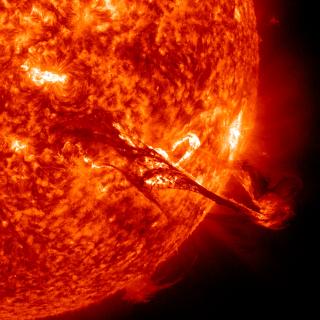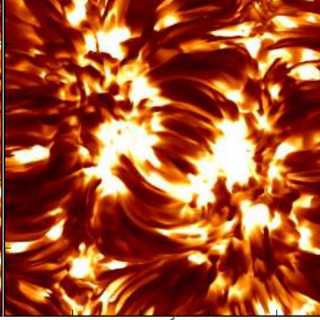Bibcode
Giono, G.; Ishikawa, R.; Narukage, N.; Kano, R.; Katsukawa, Y.; Kubo, M.; Ishikawa, S.; Bando, T.; Hara, H.; Suematsu, Y.; Winebarger, A.; Kobayashi, K.; Auchère, F.; Trujillo Bueno, J.; Tsuneta, S.; Shimizu, T.; Sakao, T.; Cirtain, J.; Champey, P.; Asensio Ramos, A.; Štěpán, J.; Belluzzi, L.; Manso Sainz, R.; De Pontieu, B.; Ichimoto, K.; Carlsson, M.; Casini, R.; Goto, M.
Bibliographical reference
Solar Physics, Volume 292, Issue 4, article id. #57, 19 pp.
Advertised on:
4
2017
Journal
Citations
11
Refereed citations
9
Description
The Chromospheric Lyman-Alpha SpectroPolarimeter is a sounding rocket
instrument designed to measure for the first time the linear
polarization of the hydrogen Lyman-{α} line (121.6 nm). The
instrument was successfully launched on 3 September 2015 and
observations were conducted at the solar disc center and close to the
limb during the five-minutes flight. In this article, the disc center
observations are used to provide an in-flight calibration of the
instrument spurious polarization. The derived in-flight spurious
polarization is consistent with the spurious polarization levels
determined during the pre-flight calibration and a statistical analysis
of the polarization fluctuations from solar origin is conducted to
ensure a 0.014% precision on the spurious polarization. The combination
of the pre-flight and the in-flight polarization calibrations provides a
complete picture of the instrument response matrix, and a proper error
transfer method is used to confirm the achieved polarization accuracy.
As a result, the unprecedented 0.1% polarization accuracy of the
instrument in the vacuum ultraviolet is ensured by the polarization
calibration.
Related projects

Solar and Stellar Magnetism
Magnetic fields are at the base of star formation and stellar structure and evolution. When stars are born, magnetic fields brake the rotation during the collapse of the mollecular cloud. In the end of the life of a star, magnetic fields can play a key role in the form of the strong winds that lead to the last stages of stellar evolution. During
Tobías
Felipe García

Magnetism, Polarization and Radiative Transfer in Astrophysics
Magnetic fields pervade all astrophysical plasmas and govern most of the variability in the Universe at intermediate time scales. They are present in stars across the whole Hertzsprung-Russell diagram, in galaxies, and even perhaps in the intergalactic medium. Polarized light provides the most reliable source of information at our disposal for the
Tanausú del
Pino Alemán